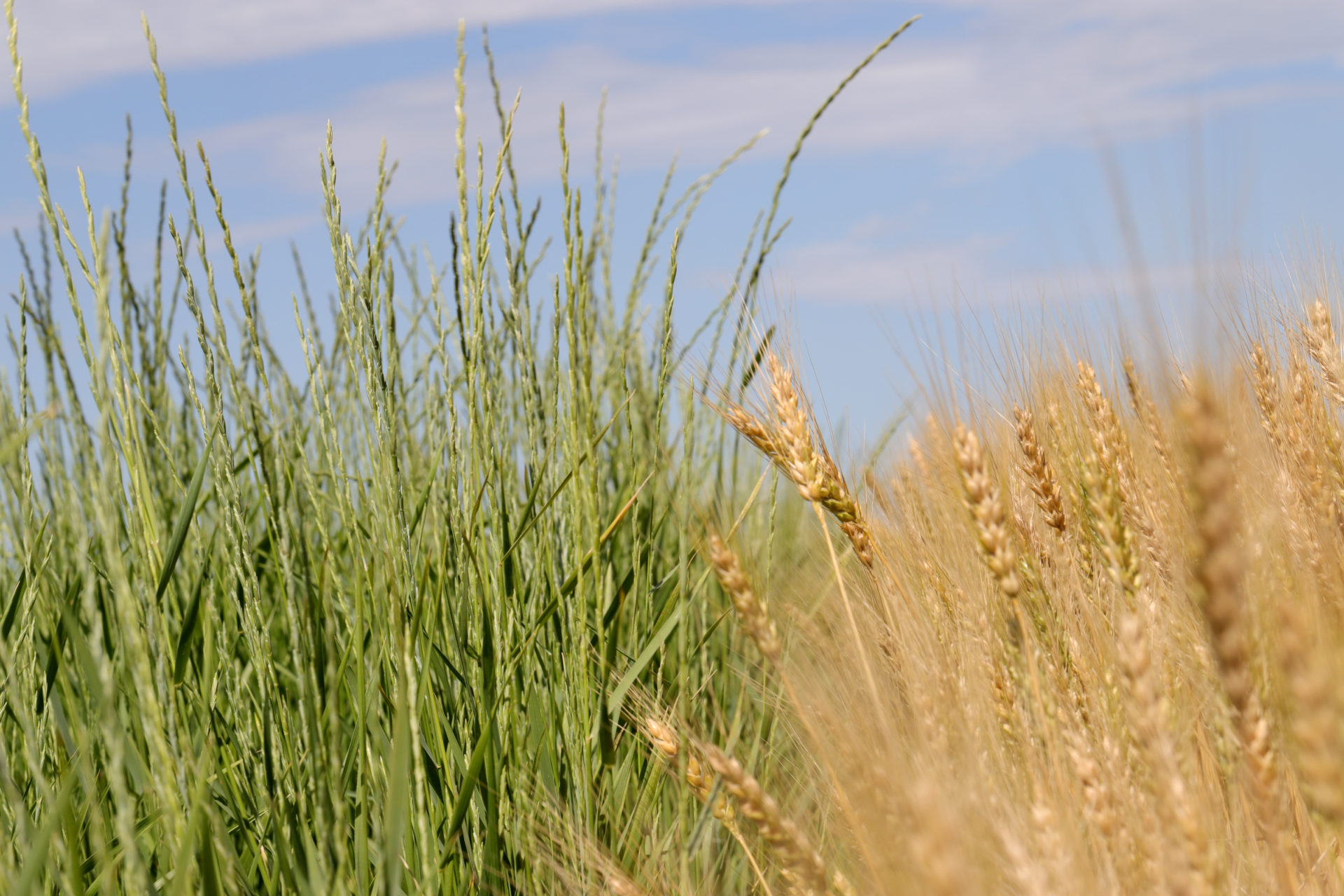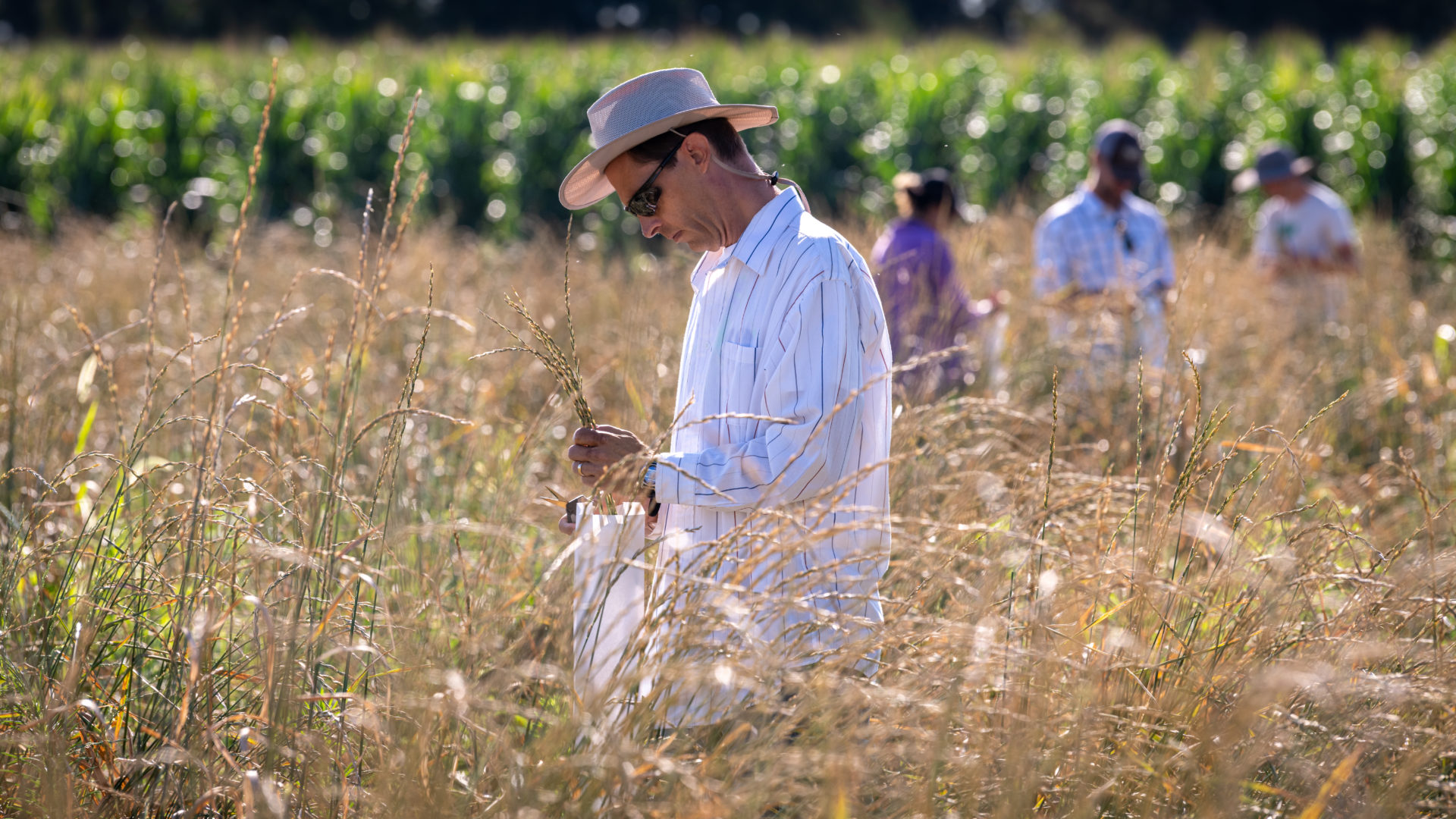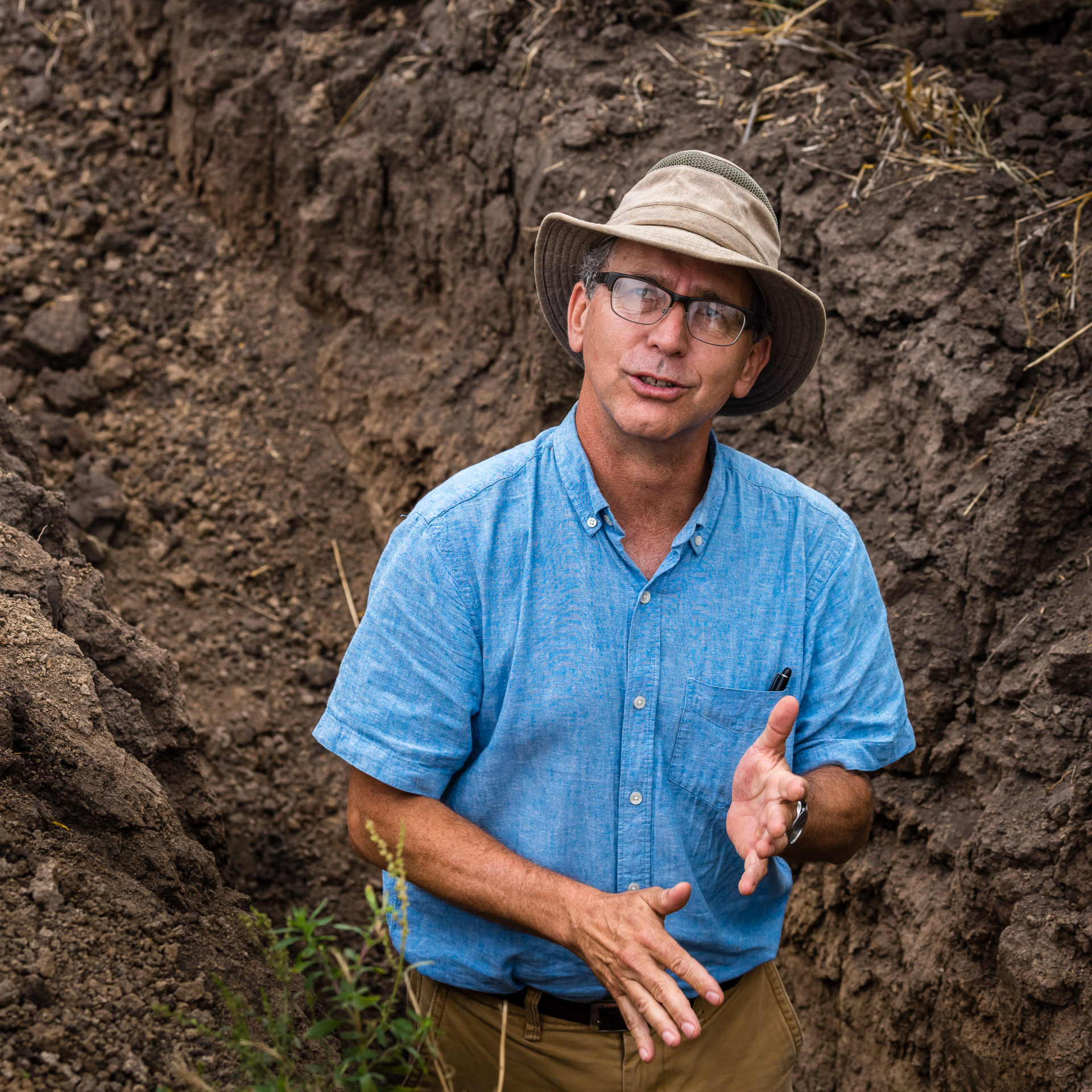25%
of the world’s annual greenhouse gas emissions are due to food production
10+
feet: Kernza® has deep roots that draw down carbon from the air to build healthy soil, improve wildlife habitat, and protect water resources
2,405
acres of Kernza® in production as of fall 2023
Perennial crops are powerful. They protect soil from erosion and improve soil structure. They increase ecosystem nutrient retention, carbon sequestration, water infiltration and uptake efficiency. They can contribute to climate change adaptation and mitigation. And they help ensure food and water security over the long term.
Many fruit, forage, and some vegetable crops, including alfalfa, grapes, asparagus, and fruit and nut trees, are perennials that have been cultivated for thousands of years. Adding perennial grains, legumes, and oilseeds represents a paradigm shift in modern agriculture. Given that grains make up over 70% of our global caloric consumption and over 70% of our global crop lands, transitioning from an extractive annual model to a perennial model is the best chance we have to create a truly regenerative food future.
Perennial grains, like Kernza®, can free farmers from the treadmill of economic instability by significantly reducing the need for costly inputs and minimizing the operational expenses of tillage and planting. This new perennial “hardware” for agriculture stands to catalyze a rich culture around food production and supply chain development. Research is emerging to understand the social and economic strategies needed to support these new agricultural systems.
Benefits of Perennial Grains?
- Perennial grains protect and build soil
- Perennial grains help secure food production and water quality
- Perennial grains require fewer inputs reducing the operating costs to farmers
- Perennial grains have great potential to mitigate climate change
- Perennial grain production will require fewer field operations and farm equipment emissions


